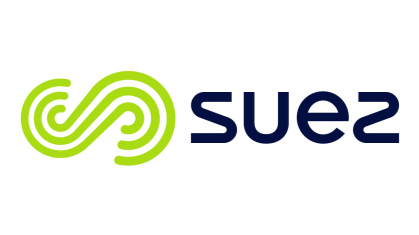
PASCACK VALLEY AREA—After removing nearly 7,700 lead-contaminated water lines throughout Bergen and Hudson counties since 2019, Suez North America — which serves 870,000 residents in both counties — said its lab results showed the lowest lead level readings it has recorded in 30 years since federal drinking water rules were first established.
Suez North America, based in Haworth, has been removing thousands of lead connecting lines in Pascack and Northern Valley towns since high levels of lead were detected in homes’ drinking water samples in early 2019.
“After a three-year, $95 million project that resulted in 7,700 lead pipes pulled from the ground in 57 municipalities across Bergen and Hudson counties, SUEZ announced today that lead levels in the drinking water in its Northern New Jersey system are at historic lows,” Suez North America said in a statement Dec. 27, 2021.
Suez provides drinking water to most Pascack Valley towns covered by Pascack Press, except Park Ridge, said a Suez spokeswoman.
Montvale Mayor Mike Ghassali welcomed Suez’s efforts in town, telling Pascack Press on Jan. 2, “Suez was accommodating and coordinated with us all their work and actually finished ahead of schedule. We were in constant contact with them during the work and knew exactly how many houses were affected and where. I was happy with the service and the attention they gave to Montvale.”
In Hillsdale, Mayor John Ruocco told us Suez’s work also went without a hitch. “Our engineer worked with them to assure that their digging could be coordinated with that of PSEG and our own road paving program. I have been receiving regular reports from them as to where they would be working each week. From my perspective and that of the business administrator, things have gone pretty much according to plan.”
According to Suez, “Lab results have shown lead levels at 5.9 parts per billion (ppb), well below the state and federal action level of 15 ppb and the 18.4 ppb the system recorded in late 2018. In fact, the current results are the lowest recorded in at least the 30 years since the federal Environmental Protection Agency established rules for testing for lead in water.”
Alan Weland, Suez vice president and general manager, said, “Our work is not done, however. We will continue to work until we get all the lead out of the system.”
Weland thanked the county executives as well as the mayors and local officials who assisted SUEZ as its crews pulled lead pipes from the ground in towns across the region.
He also thanked residents of those communities for their patience during the work.
He said properties with lead services lines or goosenecks (connecting lines) comprise only a small percentage of customers. “There is no lead in the water at the treatment plant and there are no lead mains, but about 7% of our customers have lead service lines or goosenecks.”
County Executive James Tedesco III also called out Suez’s news as welcome. (“Suez touts major reduction on lead in drinking water,” Pascack Press, Dec. 27, 2021.)
Suez said it plans to spend $810 million in projects in the next five years to remove lead pipes, replace water mains, and upgrade treatment facilities.
According to Suez, “Water providers across the nation are expected to make similar programs a priority now that the federal government has set the removal of lead pipes as a critical part of the recent Infrastructure and Jobs Act. Congress earmarked $55 billion for lead removal and other water quality projects.”
Park Ridge on contamination
Speaking of water, In Park Ridge, which has its own water utility, all water customers were sent a notice close to year’s end by the state Department of Environmental Protection over water quality issues at three wells.
Mayor Keith Misciagna told residents an email update on Dec. 30, 2021 the affected wells were shut off and are not in use “so residents can anticipate no negative impacts.”
He said, “Our water is stringently tested and turning off the wells is not required by the EPA or NJDEP; it is a step our Water Department took out of an abundance of caution … Park Ridge is being proactive.”
Park Ridge’s water is supplied by groundwater from 18 wells located throughout Park Ridge and Woodcliff Lake, drawn from the Brunswick Aquifer. The borough has three water storage tanks and five booster stations.
In its 2021 water quality report, the borough’s Board of Public Works said in part, “In 2020, we analyzed over 2,500 samples to ensure that the 710 million gallons of water we pump, treat, and deliver meets water quality standards. We are pleased to report that we have met all of the federal and state drinking water standards.”
It said, “The Board of Public Works is committed to delivering a safe and reliable supply of drinking water to the 5,000 customers in Park Ridge and Woodcliff Lake. This has been the consistent goal since the water utility began its operation in the 1920s.”
For more information on drinking water in Park Ridge, visit the borough’s website.
